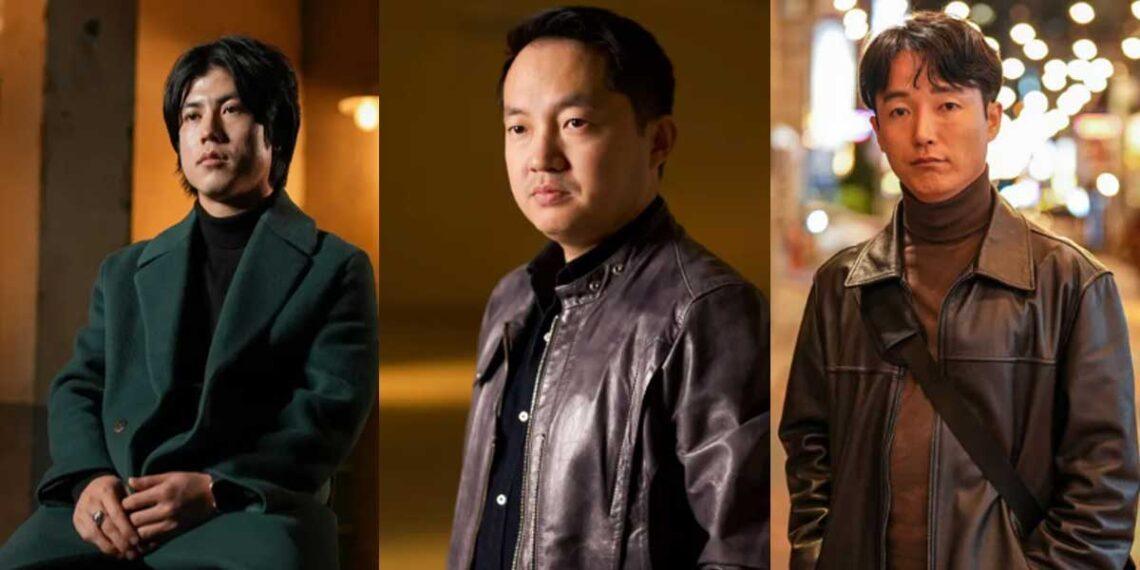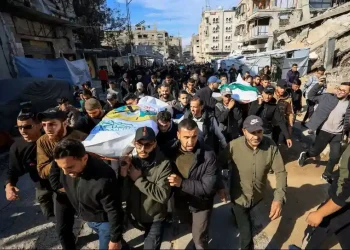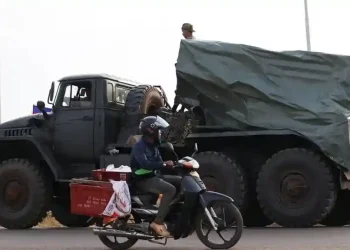North Korean Soldiers in Russia: Don’t Underestimate Their Resolve, Say Defectors
Ex-soldiers from North Korea are shedding light on the real capabilities of the troops sent to fight in Russia’s war against Ukraine. Despite harsh conditions and inadequate training, these defectors warn that North Korean soldiers, particularly those from the elite Storm Corps, should not be underestimated.
Life in North Korea’s Military: A Struggle for Survival
Haneul, a former North Korean soldier, recalls the severe malnutrition he endured while in the military. His diet consisted mainly of cracked corn and moldy cabbage, causing him to lose 10kg in the first month of service. By the time he was deployed to the South Korean border, his battalion was so malnourished that they needed to be sent to a recovery center to regain weight. Despite their better treatment, rice rations often arrived diluted with sand, and the soldiers’ overall condition remained poor.
In 2012, Haneul made a daring escape across the Demilitarized Zone (DMZ), a perilous decision fueled by the extreme deprivation he faced. His story, along with others, offers insight into the condition of the North Korean troops now fighting in Russia’s war.
North Korean Troops Deployed in Russia
Reports have surfaced that North Korea has sent roughly 11,000 soldiers to support Russian forces in reclaiming territory from Ukraine, specifically in the Kursk region. These troops, mainly from the elite Storm Corps, have faced significant casualties, with South Korean officials estimating more than 100 deaths. Despite this, defectors and military experts suggest that these soldiers should not be dismissed as mere “cannon fodder.”
The Storm Corps: Elite Yet Underfed
According to defectors like Lee Hyun Seung, who trained North Korean special forces, the Storm Corps is highly selective, choosing only taller, physically capable soldiers. These troops receive advanced training, including martial arts and survival skills, but like the rest of the military, they suffer from chronic malnutrition.
Although footage of these soldiers in Russia shows them to be frail compared to the tough, muscular soldiers seen in Pyongyang’s propaganda, their loyalty and resolve remain strong. “They will acclimatize to the battlefield, learn how to fight, and find ways to survive,” says Lee, who believes their training, despite its limitations, will allow them to adapt in time.
The Loyalty Factor: A Key Strength
One significant factor that makes these troops formidable is their deep ideological loyalty to the North Korean regime. Most Storm Corps soldiers come from working-class or farming families, and their obedience to the ruling party is unwavering. Every morning, they undergo intense “brainwashing” sessions, reinforcing their commitment to the regime. This loyalty, combined with their ability to endure extreme conditions, could make them tougher and more resilient than expected.
Additionally, while many soldiers may not have volunteered for the mission, Ryu Seonghyun, another defector, believes many soldiers saw deployment to Russia as an opportunity to improve their lives or advance in their military careers.
The Challenges They Face in Russia
Communication issues are one of the significant obstacles for the North Korean troops in Russia. Ukrainian intelligence reports that the soldiers accidentally fired on Russian forces, killing eight soldiers, highlighting the language barrier and the lack of coordination with Russian forces. However, experts say that these troops’ loyalty and will to fight will play a crucial role, despite logistical hurdles.
The defectors also point out the difficult psychological pressure these soldiers face. In North Korea, being captured or defecting is considered a disgrace, worse than death. Soldiers are trained to take their own lives rather than face capture, which poses a challenge for Ukraine in trying to persuade these troops to surrender.
A Desperate Situation for Ukraine
Though the North Korean troops are unlikely to turn the tide in Russia’s war, experts suggest that North Korea could send even more troops, potentially up to 60,000 or even 100,000 in the future. These additional troops could have a greater impact, particularly if they are rotated in and out of combat.
While their lack of modern warfare experience and undertraining may limit their immediate effectiveness, their unwavering loyalty, mental fortitude, and determination to survive make them dangerous adversaries. Former South Korean special forces commander Chun In-bum warns that it would be a mistake to underestimate them.
A Glimmer of Hope for Defection?
Though defection seems unlikely for most of these troops, defectors like Ryu and Haneul offer a glimmer of hope. Both men were eventually influenced by anti-regime propaganda and defected. However, the lack of access to phones and potential surveillance makes defection challenging for North Korean soldiers in Russia.
Efforts to sway these troops, such as broadcasting messages or dropping leaflets, have been discussed, but defectors are skeptical of their success. The psychological conditioning these soldiers have undergone makes them highly resistant to defection, and any attempt to flee could result in fatal consequences.
Conclusion
While the North Korean troops deployed in Russia may face insurmountable odds in Ukraine, their discipline, ideological loyalty, and resilience make them formidable opponents. As the war continues, the role of these soldiers will likely evolve, and their presence on the battlefield may become more significant than initially anticipated. For now, the hope is that these men will return home safely, but their loyalty to their regime remains unshaken.
This article was rewritten by JournosNews.com based on verified reporting from trusted sources. The content has been independently reviewed, fact-checked, and edited for accuracy, neutrality, tone, and global readability in accordance with Google News and AdSense standards.
All opinions, quotes, or statements from contributors, experts, or sourced organizations do not necessarily reflect the views of JournosNews.com. JournosNews.com maintains full editorial independence from any external funders, sponsors, or organizations.
Stay informed with JournosNews.com — your trusted source for verified global reporting and in-depth analysis. Follow us on Google News, BlueSky, and X for real-time updates.














